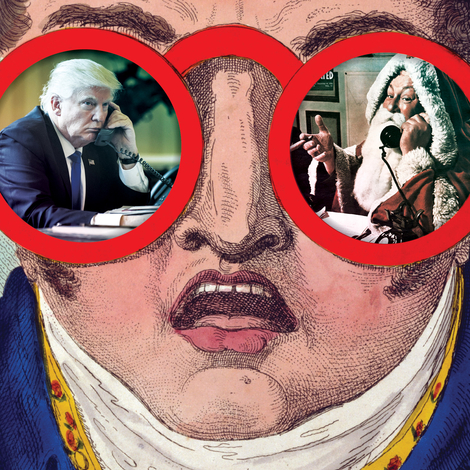A virus projected to kill off half the world’s population is set to be released within 24 hours. A demoniacal billionaire geneticist created the pathogen in order to solve the world’s overpopulation problem. Dante’s apocalyptic vision of the underworld swirls around the race to find the virus, a crucial clue to the evil plan hidden in the poet’s death mask at the Palazzo Vecchio, in Florence. Will Dante be able to save humanity from beyond the grave? This is the plot of Dan Brown’s 2013 thriller, Inferno. In fiction and in fact, Dante Alighieri has been influencing the world order for centuries. Just how he’s achieved global-icon stature is the subject of Guy P. Raffa’s fascinating, comprehensive new book.
The fate of Dante’s physical remains since his death from malaria in 1321 is itself thriller-worthy. His bones, which almost immediately acquired “the aura of holy relics,” have been stolen, hidden, exhumed, re-buried, lost, fought over, and written about by the likes of Boccaccio, Vittorio Alfieri, Giacomo Leopardi, Lord Byron, Giuseppe Verdi, Ugo Foscolo, Dora d’Istria, Henry Wadsworth Longfellow, Henry James, and Gabriele D’Annunzio. Over the centuries, Dante’s relics, image, and words have been used by Popes and politicians to try to sway the people’s sympathies in their favor. Tracing the harrowing afterlife of Dante’s bones, Raffa tells the story of the great poet’s “evolution from Italy’s ancestral father and political prophet to the nation’s secular saint.”
Exiled from his native Florence for political reasons in 1302, a devastated Dante found exquisite revenge in writing The Divine Comedy as he wandered homeless around Italy before winding up in Ravenna in 1318, where, having already finished “Inferno” and “Purgatory,” he would complete “Paradise” and then die. Raffa’s account focuses on the struggle between Ravenna and Florence for the possession of Dante’s remnants over the next seven centuries.
Living in a Box
Appropriately, the fight for Dante’s bones played out in words as much as it did in deeds. The poet Giovanni del Virgilio proposed this incendiary epitaph for Dante’s tomb just after his death: “Ungrateful Florence bore him the bitter fruit of exile, a cruel homeland to her own poet … ” In 1362, Boccaccio would write a pamphlet in praise of Dante begging his fellow Florentines to “yield the tears that are due to your son, yield to him a mother’s pity, and he whom when alive you rejected—no, chased into exile as one to be feared—desire to have back again, at least when he is dead.” The epitaph actually inscribed on Dante’s sarcophagus in about 1377 assumes the poet’s own voice and concludes thus: “Here I, Dante, am confined, an exile from my native shores, Born of Florence, a mother of little love.”

One of the most significant campaigns to repatriate Dante’s bones was led by Lucrezia de’ Medici Salviati in 1515, for which she enlisted the help of Pope Leo X, who happened to be her older brother. Word of her scheme to transport, or “translate” (translatare being the technical Latin term for “the ritual movement of a saint’s dead body to its most suitable location”), the “sacred poet” to Florence soon reached Ravenna. Dante’s tomb was housed in a chapel adjacent to the cloisters of a Franciscan convent; in a dastardly grave-robbing caper, in the middle of the night and just in the nick of time, the friars knocked open a wall of the chapel and through a four-inch gap at the base of the sarcophagus extracted by hand or tongs Dante’s remains, bone by bone—vertebrae, ribs, tibias, femurs. His skull wouldn’t fit through the hole, so they chiseled two more inches out of the marble. When the Florentine envoys arrived, they found an empty tomb. Dante’s bones would remain hidden in various places within the convent for the next 350 years.
Through a four-inch gap at the base of the sarcophagus, friars extracted by hand or tongs Dante’s remains.
During renovations in 1865, in preparation for the celebration of Dante’s 600th birthday, a wooden coffin containing Dante’s bones fell out of a chapel wall, as if the poet wanted to physically take part in Italy’s recent unification as a country and ensure its progress. In the long fight for an independent and unified Italy, Dante was a symbol for the revolutionary movement and its struggle for liberty and political freedom. The revolutionary Giuseppe Mazzini claimed that the father of the Italian language “did more for Italy, for the glory and the future of our People, than ten generations of other writers and statesmen.” Fifty years on, Mussolini would use Dante to promote his authoritarian regime, including transforming his tomb in Ravenna into “a monument to Italy’s fascist empire.”
The 700th anniversary of the poet’s death is in 2021, and there is talk of finally returning Dante’s bones to Florence for the occasion. Wherever his bones wind up, one can’t help wondering what the Italian bard who created the concepts of heaven and hell as we know them would make of where we are now. The Divine Comedy is a feat of imagination in which Dante dissects and skewers in gory and glorious detail the personal, political, social, and spiritual ills of his world in hopes of inspiring his compatriots to be better citizens. The epigraph to Dan Brown’s Inferno is Dante’s famous line: “The darkest places in hell are reserved for those who maintain their neutrality in times of moral crisis.” Given the world order at the moment, hell may be due for an expansion.
Jenny McPhee is a writer, translator, and the director of the Center for Applied Liberal Arts at N.Y.U.’s School of Professional Studies


